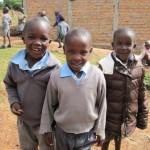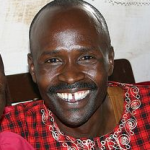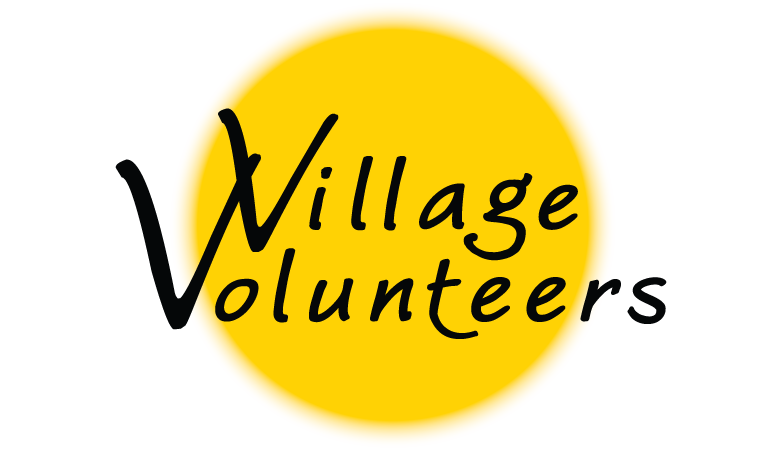Kenya: Namunyak Maasai Welfare
Namunyak Maasai Welfare (NMW) works to alleviate the harshest conditions for the most marginalized individuals in Maasai communities by providing access to public health information and excellent educational opportunities for the community and its neighbors.
Sirua Aulo Clean Water Project The goal of the Sirua Aulo Clean Water Project is to provide reliable and clean water to the Maasai people who live in the Kapune region of Kenya. Under this project, a well will be drilled and a pipeline will be constructed to convey clean potable water to a water storage system at the Sirua Aulo Academy, where it is accessible to students, staff, and local citizens.
As a volunteer, you will have a variety of opportunities to work with all age children, including special needs children, as well as in education, public health, building and construction projects. Below are some of the experiences our volunteers had.
-
From Wilmington, Ohio to Kilgoris, Kenya – excerpts from a volunteer’s trip report
-
Education is my life – A journey that led to the Sirua Aulo Academy
-
Namunyak Maasai Welfare: Quality Education for All by Alex Salkin
We love helping volunteers find their perfect placement. Fill out our Interest Form to get started!
PROGRAM OVERVIEW
Namunyak was founded in June 2004 by Emmanuel Leina Tasur, with the vision to make a positive difference in the lives of the indigenous Maasai community and their neighbors, and in the lives of orphans in the region.
lives of the indigenous Maasai community and their neighbors, and in the lives of orphans in the region.
Integrated sustainable development and environmental protection are fundamental beliefs of the Maasai people. Namunyak believes that educating, training and empowering the most disenfranchised members of society breaks the cycle of despair and hopelessness common among the rural poor. Namunyak offers long-term, sustainable solutions to alleviate poverty and isolation, and create a meaningful future for their communities and the global community at large.
Namunyak founded a private primary school, the Sirua-Aulo Academy, which opened its doors May 8, 2008. In 2014, they opened up their secondary school. Located in the village of Oronkai, in the district of Transmara, the Academy has gained a reputation for excellence in education.
See the story of Sirua Aulo Academy in the New America Media article, In Maasailand, No Child Left Behind Means Building a School Yourself, by Village Volunteer Alexandra Moe.
NAMUNYAK MASSAI WELFARE GOALS
- Vulnerable Children’s Program. To support vulnerable children with health care and educational opportunities.
- Public Health. To improve HIV/AIDS awareness and help families and individuals who are left behind by AIDS; including widows, widowers, and orphaned children.
- Building and Construction. To build a high school that incorporates the holistic development of a person’s physical, mental, emotional, and spiritual health and well-being and to build a medical clinic. Building when funding is available.
- Water Program. To provide all communities with access to safe, potable water
- Social Enterprise Development. To support school activities, staffing, and vulnerable children.
- Cultural Preservation. To campaign against cultural beliefs and practices that put people at risk (e.g. female genital mutilation), while simultaneously encouraging cultural beliefs and practices that improve the health and well-being of Maasai people.
- Environmental Conservation. To create a clear link between conservation issues and personal and communal advancement by:
- Maintaining traditional ecosystems through the preservation of forests, including education about renewable energy sources, such as solar energy, and helping the community develop and implement alternative energy sources.
- Reaching out to project partners in an effort to allow indigenous peoples to reap benefits from conservation issues. Goals include: fostering greater community involvement in the management of local national parks, game reserves, and associated eco-tourism industries.
VOLUNTEER OPPORTUNITIES AT NAMUNYAK
Education/Children:
- Teach at the Sirua-Aulo Academy
- Work with children and the population of special needs children in the community
Public Health:
- Participate in HIV/AIDS awareness and outreach
- Participate in educational campaigns to end genital mutilation
Business/Women:
- Work with women’s groups in micro enterprise developing, helping them with their design, production, and sales of their beaded goods.
Environmental Conservation:
- Sirua Aulo schools are fast tracking the establishment of alternative sources of energy at both schools. They will be the first schools in the Transmara region of the country by Securing healthy, smokeless kitchens, while conserving forests, and recycling organic fertilizer to enable implement of a biogas program. They also hope to include generators run by this biogas system to power the schools. The dairy unit at the high school will be run through this program as well, cutting down on the costs of fuel.
- Participate in environmental conservation education
Agriculture/Sustainable Farming:
- Teach bio-intensive organic farming at the Sirua-Aulo Academy
- Provide training for organic farming
Building and Construction:
- Participate in the building of schools when funds are available
ACCOMMODATIONS AT NAMUNYAK
Housing
Volunteers are hosted in volunteer huts located on the grounds of the Director’s home. There are pit latrines available for volunteers, and volunteers bucket bathe in a private washing room.
Meals
Meals are prepared and eaten in the Director’s home.
Drinking Water
Volunteers are provided with boiled and filtered water.
Electricity
The huts have solar energy but it is recommended that volunteers bring headlamps.
Internet Access
Volunteers can access the internet in Kilgoris, approximately 20-30 minutes away. The director has access when there is a special need to use.
Laundry
Volunteers will be provided with water so they can launder their own clothes.
MEET THE PROGRAM DIRECTOR OF NAMUNYAK: EMMANUEL TASUR
EMMANUEL TASUR
Reflections on Emmanuel’s childhood and family.
I grew up in a polygamous family with many siblings. Our family was also nomadic. We moved from one place to the next, trying to get pasture and water for our animals. My parents received very little education- up to elementary level. For these reasons, they were not able to keep proper records of birth dates for their children and at the time the government did not require that children get birth papers, I usually tell people that I had to guess by date of birth for documentation purposes.
The communal kind of life meant that as much as I was a child to my parents, I also belonged to the community. My father would donate me to other homes that didn’t’ have grown children to herd their cattle. There were great challenges though, my mother being beaten by my father every now and then really depressed me. It did mean that we had to care for ourselves sometimes as she was chased away from the matrimonial home until negotiations were done for her return. We loved herding and grew up chasing wild animals for fun – like giraffes, zebras, tons of gazelles and many other friendly herbivores- but not the elephants or buffaloes. If there is anything I treasure in my childhood, it must have been the many times we met as boys and did the chasing around of wild animals- but it was never intended to harm any of them, we just tried to outrun them. Discipline was a requirement for all community children and any adult could mete out the discipline to any child since all children belonged to the community. Again, I definitely miss those days, unlike these days when a child belongs to an individual and not the community.
The challenges Emmanuel faced pursuing an education.
There were a ton challenges that I faced when I tried to get educated. At a very early age, my mother talked to me and all my siblings about the importance of getting an education. She said an education would enable us to get jobs and improve our quality of life. It was difficult to begin early since the nearest school was 7km away and we had to pass through some forest that had buffaloes. We had to wait until they receded before we could go to school. We played a hide and seek kind of game with them. It was difficult going a whole day with an empty stomach and then come back home to only milk for food. I began first grade at the age of 9, maybe even 10 or 8 since I didn’t know the exact date. Sometimes I would come back home and my parents had had a disagreement, and my mother had gone back to her home. I had to get firewood and take care of my younger siblings. Later on when I joined high school, it was even difficult getting fees for my education as my parents thought that selling cows to educate me was a waste. Getting a college education was even harder since I had to do this while taking care of my family.
What inspired Emmanuel to do the work he does and how he got started.
The desperation in the Maasai community led me to begin what I’m doing right now. There is a lot of pervasive ignorance and the community has been taken advantage of for a very long time. Something needed to be done to change this trend. I never wanted any Maasai child to go through what I went through. Helping children get a better education is the hallmark of what I do now. I began by sponsoring a few children to better schools and when I saw that each child given a chance can be a better human being, I promised in my heart to begin a school not only for Maasai children but for many disadvantaged groups around our locality. The Sirua Aulo Academy is a testimony that once you get your heart to do something, the whole world conspires to help you achieve it.
What obstacles did Emmanuel face?
There were quite a number of obstacles. The school we’re working on now should have been completed 10 years ago but we had a problem of finances. There are just so many people that need help. It is very painful for me to turn an orphan away when their guardians bring them seeking assistance. We also have a terrible road network and generally a poor infrastructure outlay around the community that makes the cost of transporting supplies to the school so expensive.
What are your hopes for the future of Namunyak Maasai Welfare?
The program has a great and brighter future. I believe that in the long run, we will be able to build three more schools of this kind. There is overflowing enthusiasm that many past volunteers and friends have shown to all that we are doing. I hope that the programs we have lined up come to fruition, like the eco-tourism facility, which could be self-sustaining. We also hope to establish an endowment fund to help as many children as possible get education scholarships.
How has the partnership with Village Volunteers affected Namunyak’s work?
Our partnership with Village Volunteers has been the spark that has ignited a strong fire of support. It is through Village Volunteers that we have been connected with supporters across a number of countries. We have received great support in terms of the safari money that Village Volunteers has continued to send us. This has made it possible for us to pay staff on time and run the school smoothly. We have also received great advice from Village Volunteers on how we had to relate with some donors who wanted to take over the very work we were doing, which helped us avoid pitfalls that could have made our work more difficult. We are very grateful for this partnership.
How does your community benefit from having volunteers?
The Maasai community has received many benefits from being able to be with volunteers who have taken care of orphan children at the school. There have been many social programs targeted at vulnerable groups like windows that have helped them smile again in their lives. Friendships have developed and many people’s hopes have been raised by volunteers from Village Volunteers.
